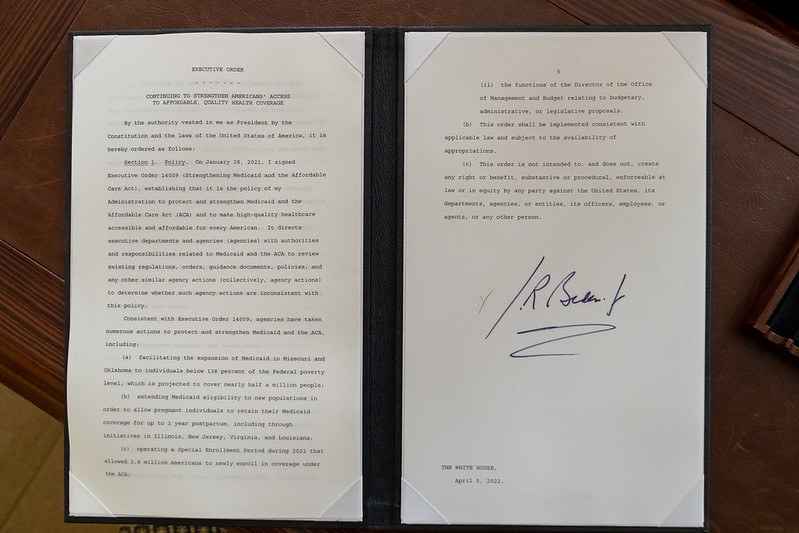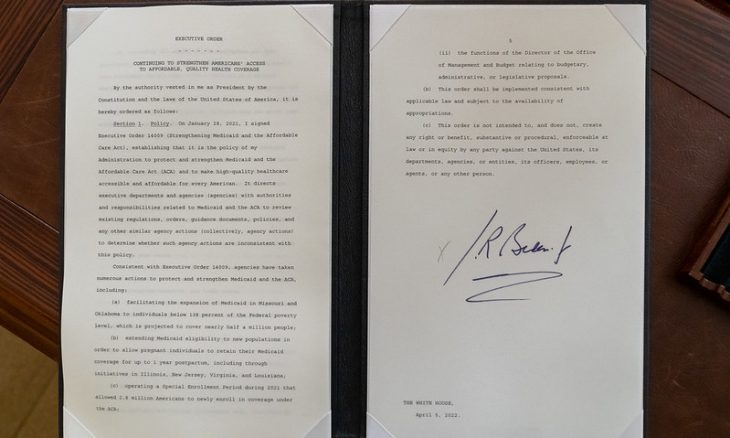From Persuasion to Action

Every president comes into office having made numerous campaign promises. As the president moves from election to inauguration, those promises are converted into agendas for legislative action, executive action, foreign relationships, and domestic approval.
The power of persuasion rests heavily on American presidents. They need to persuade members of Congress, members of their own party, members of the opposition, and members of the general public to come to a compromise in order to advance his legislative agenda. In the same way, presidents persuade leaders of bureaucratic agencies to implement public policies in ways that are consistent with the goals of the administration. The president sells the agenda.
Each of the last three administrations released one or more President’s Management Agendas, known as PMAs.
The current White House has published the “Biden-Harris Management Agenda Vision: a roadmap for our Government to deliver results for all Americans.” The President’s Management Agenda defines government-wide management priorities for all federal agencies to “improve how Government operates and performs.” In the introduction to the Biden-Harris PMA, President Biden writes:
“One of the central questions of our time is whether American democracy can still deliver—can we come together to meet the most pressing needs of our people? … The President’s Management Agenda (PMA) is a blueprint for our Government to deliver for Americans the Government they deserve as we continue to build back better.”
The administration lays out four values they say will guide their administration: Equity, dignity, accountability, and results. In a vision statement that follows, each of the values is elaborated upon briefly, after which President Biden writes, “It’s time we remembered that we, the people, are the Government. You and I. Not some force in a distant capitol, not some powerful force that we have no control over. It’s us. It’s we, the people.”
The PMA format then goes on to detail the administration’s priorities and the strategies for achieving them. The goals, as one would expect, are lofty, and the strategic focus is broad and offers a wish list for how the goals are going to be achieved.
News headlines reflect the advancements or the obstacles the president’s agenda experiences. The media has reported on the president’s “wins,” including an expansion of NATO and funding for high-tech manufacturing, notable gun legislation, infrastructure spending, a veterans’ bill, and price controls and drugs tucked within an omnibus budget bill. Also recently passed was the largest federal climate plan in America’s history.
The president also faces the issues of unpopularity. high inflation, and unfulfilled promises. His major legislative item, the Build Back Better Act, actually jeopardized the entirety of the agenda. Ultimately, the legislation was recrafted and modified to the Inflation Reduction Act that still retained much of the climate actions of the administration agenda, while setting aside other items in favor of compromises with moderate senators.
President Biden is nearing the success rates of President Ronald Reagan with his legislative actions and tax program, President Bill Clinton and his NAFTA and crime bill, and President Barack Obama’s stimulus bill and health reform.
While one side heading into the midterm elections will focus on what the administration has accomplished in less than two years, the other side will focus on the problems the administration is having: the U.S.-Mexico border crisis, rising inflation, and the potential for a recession; a rise in the soft-on-crime attitudes leading to increased crime; and a lack of parental rights in education.
While party loyalists campaign on the successes of the Biden-Harris agenda, they are avoiding the issue of the controversial student loan forgiveness. Many in battleground states panned the student loan relief plan within hours of its release, a sign of concerns that it could alienate swing voters in November.
God does not discourage planning, but He asks you to be discerning as you evaluate such plans. “As for the scoundrel—his devices are evil; he plans wicked schemes to ruin the poor with lying words, even when the plea of the needy is right. But he who is noble plans noble things, and on noble things he stands” (Isaiah 32:7-8). “Righteousness exalts a nation, but sin is a reproach to any people” (Proverbs 14:34).
How then should we pray?
- For the president and his advisors as they continue to strategize on remaining elements of their agenda.
- For the president and his administration to have their hearts touched by the Lord to accomplish His values and vision for America.
- For wisdom for members of Congress as they consider legislation that has been proposed to support the president’s agenda.
- For the leaders in both houses of Congress as they continue to move portions of the president’s agenda through the legislative process.
- For the Lord to provide insight and discernment regarding the platforms and potential stands of candidates in the upcoming midterms.





